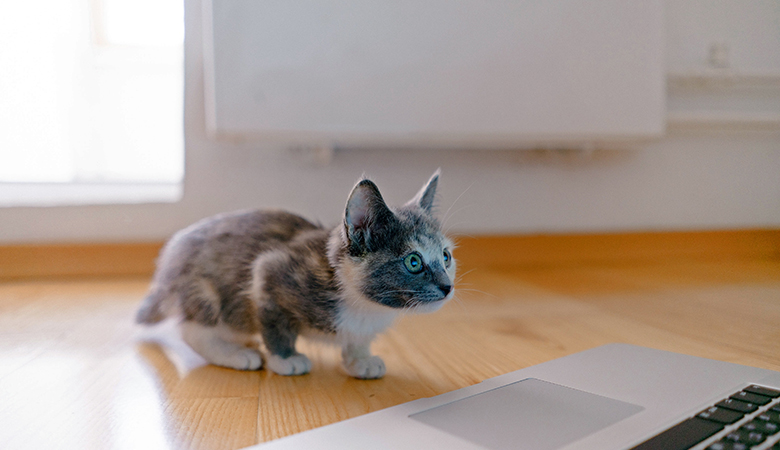How to keep your kitten healthy
Written by Indy |
This article was written by Royal Canin. A healthy kitten is a happy kitten. That’s why you want to keep your kitten in the best possible condition and take good care of them. We’re here to help you with that.

Dental care
Very few owners teach their kitten to get used to tooth brushing — and that’s a real shame, because dental care is incredibly important. The effects of plaque and tartar can become quite serious and painful later in life. In the end, your cat may even lose their teeth.
That’s why it’s best to get your kitten used to daily brushing from a young age. Make it part of your routine — for example, just before bedtime or right after waking up.
Coat care
Especially if your kitten has a long coat, daily grooming is a must. It helps prevent painful tangles, and regular combing and brushing makes the grooming process easier — for both you and your kitten. Make sure to use the right tools, suited to your kitten’s coat type.
Even kittens with shorter coats should learn to get used to coat care. It helps them get comfortable with being handled, and allows you to quickly detect parasites or skin irregularities — so you can act early and keep your kitten healthy.
Proper kitten food
Nutrition plays a key role in your kitten’s health. By giving them a diet tailored to their life stage, lifestyle, and breed, you can support their well-being in the best possible way.
Kittens go through two growth phases, each requiring a different nutritional composition. The first phase (0–4 months) is all about growth, growth, and more growth. The second phase (4–12 months) focuses more on gaining strength.
Some breeds even have their own specially formulated kitten food, to better meet the specific nutritional needs of that breed.
It’s worth finding out which food is most suitable for your kitten.
Neutering/spaying your kitten
It’s a common misconception that your kitten is fully grown after being neutered or spayed. Most kittens still benefit from eating special kitten food until they are fully grown. However, to prevent weight gain after the procedure, it’s best to switch to kitten food specially developed for neutered/spayed kittens.
Exercise
Exercise helps prevent excess weight — and that’s important, because being overweight can lead to:
- Skin problems
- Diabetes
- Bladder stones or crystals
- Lowered immunity
- Joint problems
Playing with your kitten not only keeps them active and fit — it’s also great for your bond. The more time you spend together, the more your kitten learns to trust you.
Vet visits and vaccinations
In addition to regular vaccination appointments, it’s important to take your kitten to the vet at least once a year for a health check. This allows the vet to monitor your kitten’s weight, check for parasites, and detect any potential health issues early.
Still have questions? Feel free to contact us at: veterinarian@vetsend.co.uk.



